Peter Piper once Picked A Peck of Pickled Peppers — but he didn’t Pick a Peck of PC Parts. Building a PC from scratch is a fun and satisfying process. Finding those components at the best price when graphics cards can change prices based on what cryptocurrency miners think will give them an edge and new processors seem to come out every day, can be a huge hassle.
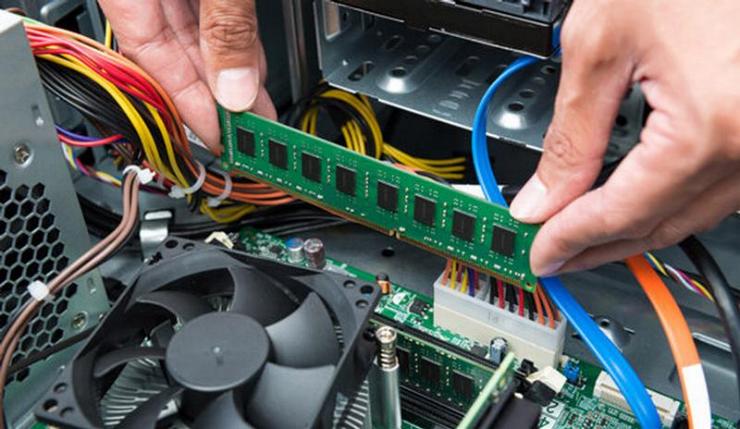
We’ll list out the best of what are called “pcpartspicker apps”, where you can find them, and what they can provide. Sometimes it’s a good idea to use multiple systems, but the more we can narrow down the easier this process will be create the PC of our dreams.
Instead of doing all of the work yourself, enthusiast groups can help through pc parts picker systems. A good pcpartpicker scans various web sites such as Newegg, Amazon, eBay, and other online stores to find the best prices on computer parts. They also will rank an optimal build based on different price sets, so if you’re looking to build a more casual rig you can find the right pieces for that, if you’re looking to create the ultimate system to run “The Witcher 3” at 4K resolution, then we can do that too.
How PC Parts Pickers Work
Whatever name you call them by — “pc parts pickers”, or “pcpartspicker app” or “custom PC builders”, the idea is usually the same between each of them:
- Evaluate the performance of PC components against each other. A good pc part picker site will weigh components such as processors, graphics cards, and other parts against each other for price, energy use, performance, and compatibility with other platforms.
- Create groups of components that work together. It wouldn’t do any good to pick a motherboard that worked with Intel processors then get the price of an AMD processor that doesn’t work on it. Or if we want to use a M.2 SSD hard drive, better make sure that the motherboard can actually connect to it. A good pc parts picker system will group components together so we can easily mix and match what kind system we want to build.
- A good layout. If using a pc parts picker site is more confusing than scanning the various stores, then it’s just a waste our time to even use it. A good pc partspicker should have a clean interface that makes it easy to get what we want.
PC Parts Picker Best List
The following web sites are the best out there, and a free service for those who are looking to get all of the components they need to put together their own custom computer. They do it in different ways, but they’re the best place to start for getting the pieces we need.
-
PCPartPicker
You knew we had to mention the one that uses the name — PCPartPicker. This is the one that people think of first because — well, it’s right there in the name. Just because they got good with the name doesn’t mean they don’t know how to help you find the parts you need for your new computer. They do so by recommending different builds — sets of computers that meet specific goals. Looking for a gaming rig? Then you’re going to need different parts than a person looking to build a home media server. Prefer Intel over AMD? Click a few checkboxes, and you’re able to quickly narrow down what kind of components you’ll need for your preferred computer.
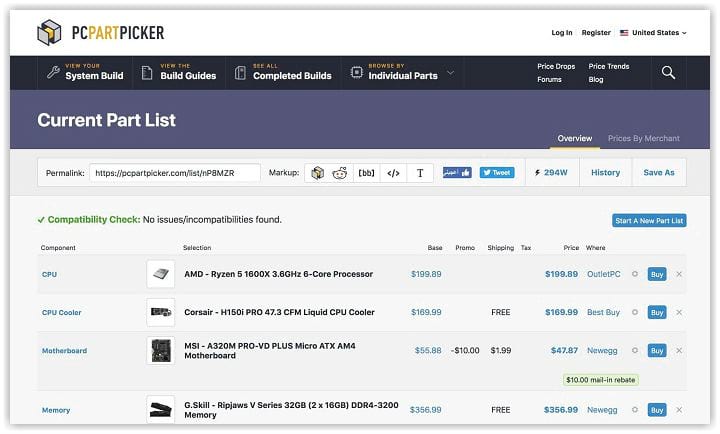
-
Logical Increments
Logical Increments isn’t out to tell a story or wow you with witty banter. This pc parts picker website lays things out in a spreadsheet format based on the amount of money someone wants to spend on their goal. The cheapest can be put together for less than $200 US, while those are are looking to create a monster computer can spend up to $6000 US on their system.
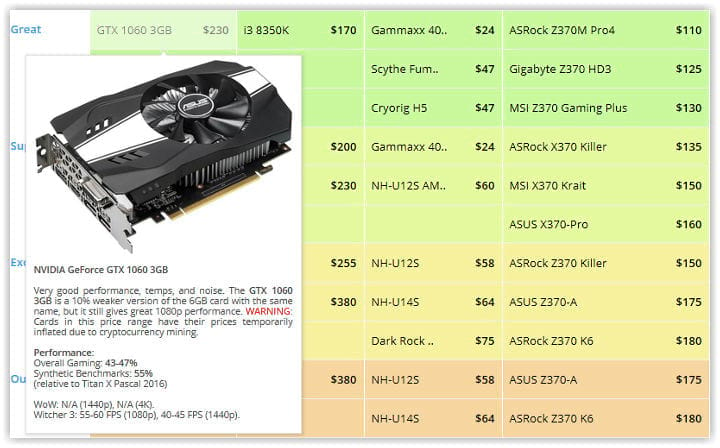
Each component is rated as the best in its price point and performance range, with a link to where the piece can be purchased at the cheapest price. One issue is that it doesn’t always track whether the part is actually in stock at the target store, which can leave the user having to find an alternate option for themselves.
-
AnandTech Build-A-Rig Blog
Not as concise as other pc parts picker systems and more a series of articles, the AnandTech Build-A-Rig Blog is handy because it provides explanations for their decisions. Instead of just listing the part and price, they go into detail to explain their decision, why they think one component is superior to the other, and how it ties into the overall goal of that particular build. Some will focus on gaming performance on a budget, others on creating affordable media servers.
The articles are well written, and the people writing them really know their stuff.
-
Choose My PC
Choose My PC takes a different approach. Instead of a list of possible systems, it uses a series of questions to piece through what kind of computer options we’re looking for, what the budget is, and other settings. From this, it creates a custom list of parts that meet our goals, and let’s us change the parameters for our computer, then tweaks the list again. Most pc parts pickers will focus on what technology we want to use, while Choose My PC focuses on why we want to build our special rig.
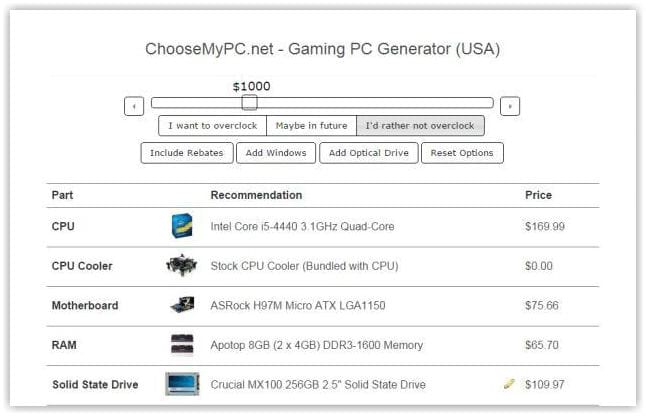
The list of options are simple, but does more to make this a custom experience than just throwing up a list and letting the user go with that.
-
Tom’s Hardware PC Builds
Tom’s Hardware PC Builds is the granddaddy of PC parts and testing. It has rigorous systems to measure one system against another, to show how each part stacks up in various ways. The PC builds system helps users find what parts, and then follow up in detail how each one works so users can enjoy — or be agonized — by the massive options to choose from.
What makes Tom’s Hardware pc parts picker so good is they’re one of the few who actually tracks what items are in stock across different sites. Rather than getting excited for the graphics card, or the power supply that will fuel our system only to follow the link to find out we can’t even get it, Tom’s gives an alternate options that can perform as close to the same capabilities as the part we wanted.
Once we have our dream system in place, the new challenge is protecting it. Most people will think of antivirus or other systems, but don’t neglect protecting files from being lost. To keep our files and drives under protection so we don’t lose anything, try out Disk Drill.
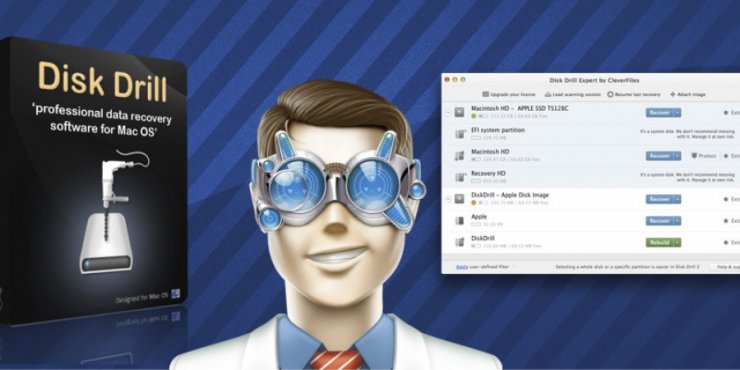
For a free download, it can recover up to 500 MB of files, and registered users get enhanced protections that prevent file loss before it happens.
